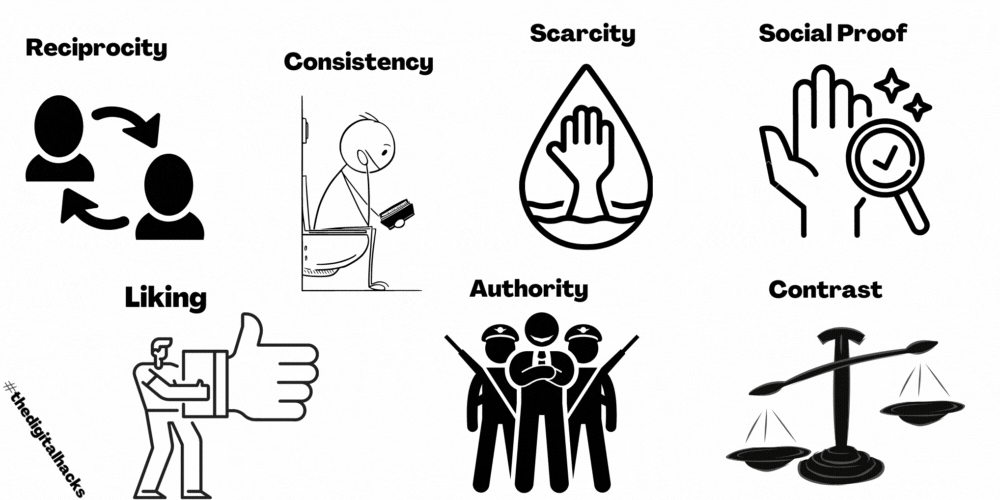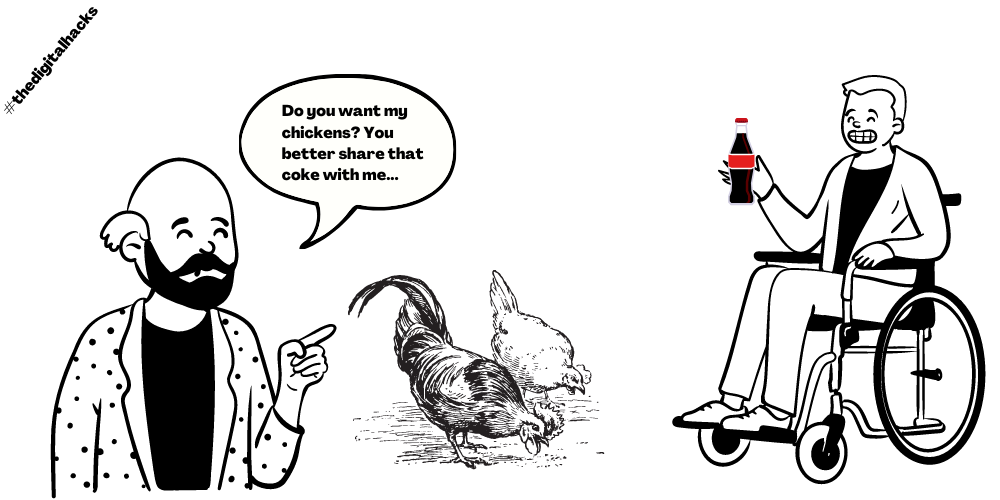
How to influence other people’s actions to your advantage.
Robert B. Cialdini after passing all his life, like many of us, agreeing to other people demands, started questioning himself about what were the determinants that make one person say yes to another?!
True is that our mind is extremely conditioned by external impulses. And in that sense, we can currently react differently to the same question depending on so many factors. In his book The Psychology Of Persuasion, the American writer highlighted 7 pillars points that constitute a persuasion strategy strongly applicable to marketing. He defines them as weapons of persuasion.
The first of this technique is represented by the Contrast Principle. Our mind tends to overestimate something when compared with a previous bad association. This strategy is widely used by real estate companies. When selling you a property it is often preceded by the exhibition of other worse ones, so once the latter has been presented, the choice is easy. This principle can be effectively applied to marketing. By proposing your product/service in contrast to those that are recognized in the market as of poor quality, it will automatically increase its positive perception. What has been said occurs in many situations of our daily life and we simply react by accepting complacently the least bad of what is presented to us.
Reciprocation. By nature, we tend to give to those who give to us. If someone requests something from us, after having previously done us a favour, there is a strong higher chance that we will fulfil it. We feel a sense of obligation to those who help us. In marketing, for example, the lead magnet represents a free item or service that is given away to gather contact details; this is a strategy widely used in various websites often with high success

Commitment and Consistency. This principle describes how people want their beliefs and behaviours to be consistent with their values and self-image. In practice, we cannot preach good and do bad. We feel responsible for being consistent with what we say and with the perception we have of ourselves in society. To express this concept, the author introduces the case of the telephone solicitors for charity. These latest, that nowadays are calling asking you to contribute to some causes always begin the conversation asking about your current health. This is because, after having answered positively, you will feel more responsible when the interlocutor puts you in front of a request for help for those who are not well.
Social Proof. We view a behaviour as more correct in a given situation to the degree that we see others performing it. This happens in marketing when we see reviews and feedback on a website by other professionals. When we see experts recommending a product or service we are more kine in trusting its value because we assume that if a person more knowledgeable than us is using it, it means is good.
Liking. We tend to be more influenced by people we like and/or we aspire to be like. Furthermore, we like people who are similar to us. Consequently, those who wish to be liked to increase our agreement can achieve that purpose by looking similar in any of a broad type of ways. Within our marketing, this principle can be applied by expressing similarities with our audience in our copy and communication. We have to embody our target user.

Authority. This principle is based on the fact that we tend to trust those who are recognized as an authority in a specific subject. Think about this concept in everyday life; we often follow our doctor’s opinion regarding health and well-being, in the same way, we are likely to agree with our lawyer judgment in terms of low. When it comes to online marketing, trusting someone tends always to be more complex. That’s why being an authority in your market niche is an extremely powerful factor.
Scarcity. We tend to give more importance to things when we are afraid of losing them. This mental trigger is widely used by marketers to stimulate the so-called FOMO Fear of Missing Out. Many times on hotel booking sites or flights booking sites, such as Booking.com or Skyscanner.com, we see pop-ups appear that notify us of the decrease in the products/services we are looking at or warn us that other people have just purchased. These techniques leverage precisely on this human cognitive bias that makes us tend to appreciate something more when we are afraid of losing it.
These seven principles, which rely on the psychosocial characteristics of every human being, are real influence bombs when applied with a defined purpose within our digital marketing strategy. By managing to apply even half of these principles, we can influence the purchasing behaviour of our target users by significantly increasing conversions within our online store.





